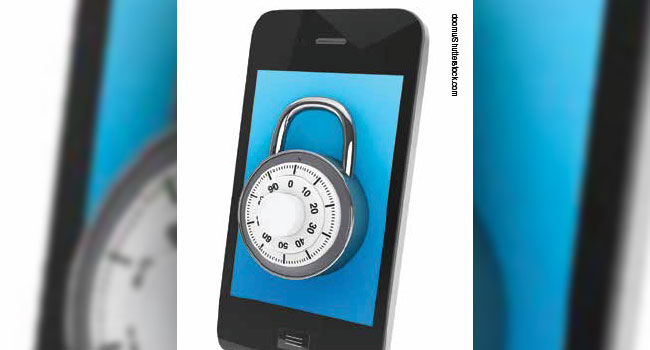
Its Time to Think Mobile
Device security is key to ensuring safety of critical business networks and data
- By Vinson McCray
- Apr 01, 2015
Today, it is not uncommon to see business
conducted beyond the walls of an
office building. In fact, many employees
are escaping the confines of their cubes
by using smartphones, tablets and other
devices as their primary business communication
tools. While these devices enable greater employee
productivity and collaboration, mobile communication
also comes with its own inherent security risks—
risks that cannot be ignored.
While PC devices receive their fair share of cyberattacks,
mobile devices are no different. As mobile technologies
and Bring Your Own Device (BYOD) policies
continue to infiltrate businesses more and more, so do
the threats of attacks on these corporate networks.
The new reality is that cybercriminals are now targeting
all facets of mobile communication, including
texting or Short Message Service (SMS), Multimedia
Messaging Service (MMS), email and Wi-Fi networking.
With communication being one of the largest
pillars supporting successful business efforts, one effective
cyberattack could cause turmoil to an entire
business model.
Identify the Threats
Some of the most common mobile security threats include
virus transfers through web traffic and phishing
scams. For instance, phishing scams, which seem to
have become a staple in today’s news headlines, now
come via email, text messages and even social media.
Every day it seems more and more individuals are
tricked into disclosing personal information, such as
banking numbers and passwords, under the false pretenses
of a disguised malicious website.
Drive-by downloads have evolved to target mobile
devices, both smartphones and tablets. Considering
the web browsing that an employee may do on his or
her mobile device in any given day, this can be one of
the most crippling threats a business may face. When
an individual visits a malicious web page, a foreign
application is unknowingly downloaded to his or her
device and can remain there, unnoticed, as the cybercriminal
gains direct access to critical data, information
and applications.
Another popular mobile threat focuses in on the
use of public Wi-Fi networks. With people traveling
day after day for business, public Wi-Fi has often been
seen as a necessity for working “road warriors.” Without
the same security measures of a fortified business
network, public Wi-Fi networks increase the chances
of data security breaches by giving cybercriminals direct
access to devices and company networks.
Networking threats aren’t strictly limited to public
Wi-Fi networks, either. As employees open, edit
and send company documents through their personal
mobile devices, they also unknowingly increase their
chances of infecting their devices with malicious malware.
If just one of those documents carries malware
or other viruses, a mobile device is immediately compromised
as soon as the document is opened.
And, let’s not forget about the age-old threat of
a missing or stolen device. With the amount of business
and employee data available on a device, this can
easily become an IT professional’s worst nightmare.
If the device contains sensitive corporate information,
whether customer data or network applications,
the security door has been left wide open, with much
more at risk than just a stolen piece of equipment.
Be Proactive, Not Reactive
While the need to heighten security is clear, the problem
is that most businesses don’t know where to start
when it comes to mobile security. Arguably the most
important factor is a proactive, rather than reactive,
approach. Once an employee’s mobile device or the
network has encountered a breach, CIOs and IT directors
are already forced into a reactive, scurrying
mode. By cutting costs and minimizing security budgets,
a business may save a little money in the short
term, but increase the risk of losing much more in
the long term. The need to protect business, employee
and customer data should drive all security strategies
for networking, PCs and mobile devices.
Mobile communication is an extension of the business,
and should be viewed as such. Mobile device
protection should be handled in the same manner as
that of traditional office desktops and PCs. One option
of remaining proactive with mobile security is
employee education; educating them on the risks of
using their smartphones or tablets for business communication
and their responsibility to adhering to
a company-wide BYOD policy. This is particularly
important for employees exchanging credit card information
over their devices and for those who work
within the government or health sectors where security,
confidentiality and privacy remain top priorities.
An ideal BYOD policy should outline not only the
“acceptable” mobile devices, but should also clearly define
who will be handling activation/deactivation procedures,
password management and software updates.
Opt for Scalability
The good news is that industry-leading, enterpriselevel
security solutions are readily available and often
offer a layered approach to ensure that networks,
mobile devices and data are protected from all angles.
Think of security as a door that opens and closes.
Once someone is allowed to enter through the security
door, there are still typically other clearance levels
and authorizations in place on the inside to ensure
that person is allowed to be there. A scaled security
product goes several levels deep to help protect corporate
networks from intruders that may sneak in
through the front (or even the back). By focusing the
same level of attention and applying the same type
of advanced security measures to employee mobile
devices, organizations are far better equipped to fight
off cyber threats.
Much like a business and its customers, security is a
partnership. Your employees and security solution vendors
must be a part of the conversation, the relationship.
If you are not driving toward the same
goal, then you are opening your business
up to unwanted risks.
This article originally appeared in the April 2015 issue of Security Today.